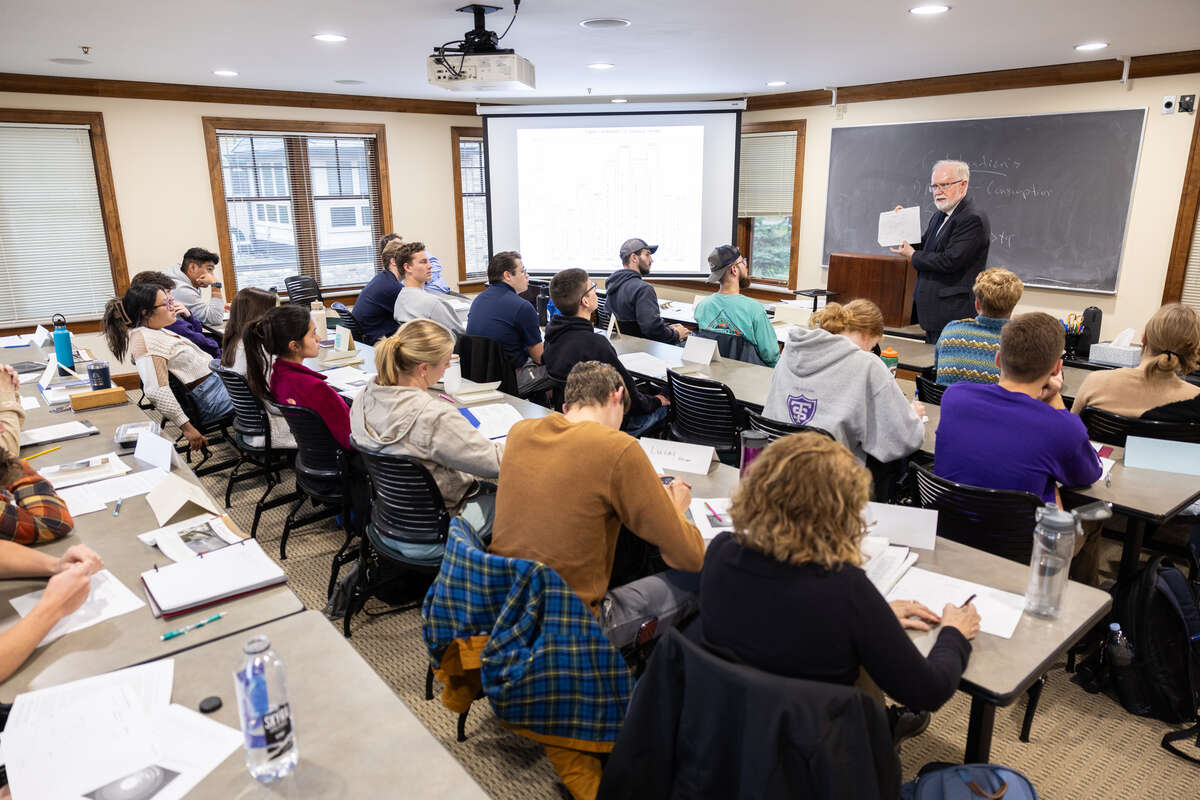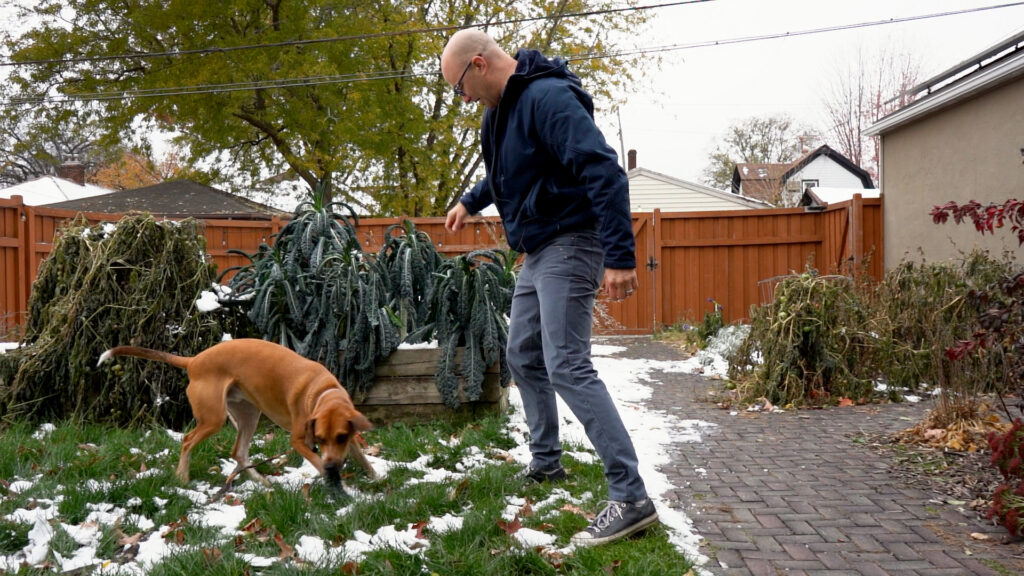Two University of St. Thomas leaders teaching a new interdisciplinary course hope it will become one of the university’s signature offerings. Director of the Center for Catholic Studies Michael Naughton and School of Engineering Dean Don Weinkauf are co-teaching Mission of the Engineer.
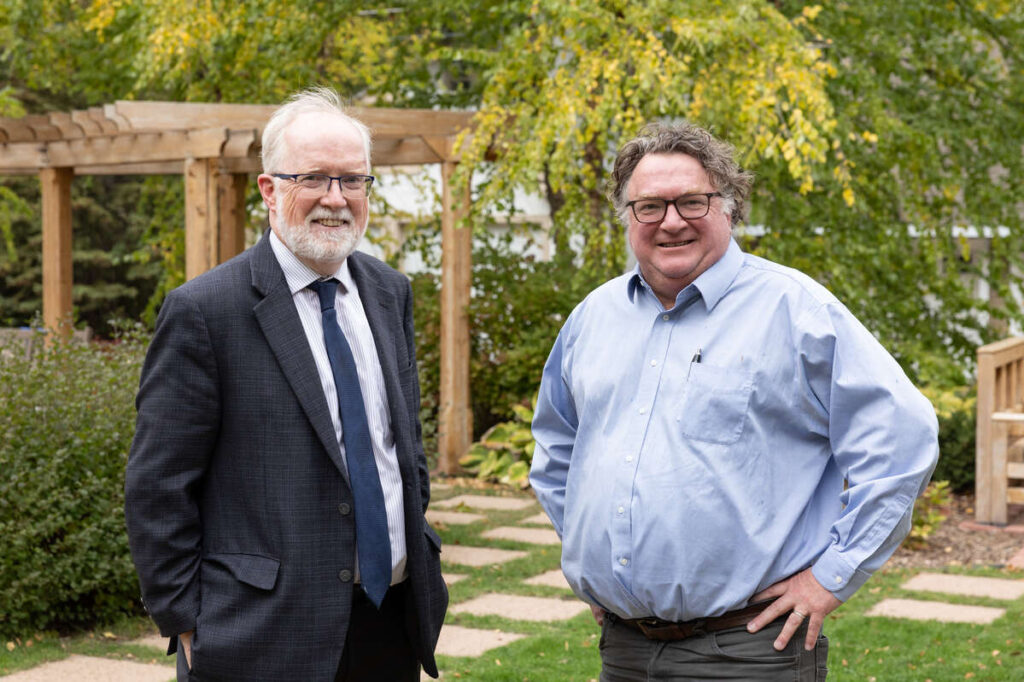
Students in the course learn and reflect on a variety of topics including how engineers can make wise judgments about their work as it relates to their lives.
“In a professional career, engineers and other businesspeople are going to be immersed in a system of systems,” Weinkauf said. “We are encouraging students to develop a contemplative life that allows them to see the bigger picture. We want to enrich them with an understanding of why they are doing something in their work.”
Naughton and Weinkauf designed the course to be an integration between faith and reason, making connections between liberal arts courses and professional courses.
“One of the great strengths of a university is its specialization, yet one of its great weaknesses is specialization,” Naughton said. “The danger with specialization is that it often disconnects from other forms of knowledge.”
Additional areas of discussion in the course range from artificial intelligence to the structure of organizations and polarization in society and the workplace.

‘I think it might change my life’
Students taking the course rave about how it is helping them grow.
Mechanical engineering major Aidan Willard ’24 initially took the course because it’s a combination of engineering and Catholicism.
“The course has really been touching a lot of ideas that have been on my mind lately related to work and leisure, like integrating my work, creating into a vocation and using my leisure time as a way to allow me to receive the gifts and graces from the rest of my life that can inform my work,” Willard said. “This class has been calling me out on those ideas and speaking to them. Honestly, I think it might change my life.”
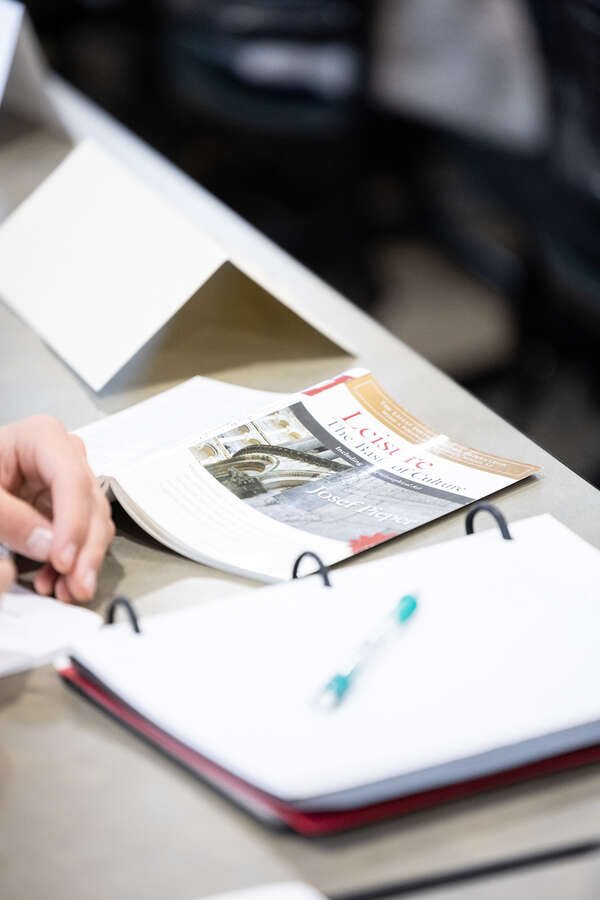
William Howell ’25, who is majoring in mechanical engineering and minoring in Catholic studies, said the course brings together seemingly disconnected topics.
“Engineering classes teach you a lot of valuable skills. They teach you the techniques behind learning new skills and how to pick up new skills,” Howell said. “This class is sort of a synthesis of how you become a better whole person rather than just a walking skill set.”
“Leadership is about being receptive to bigger ideas,” Weinkauf said. And that’s one of the areas he said the students develop.
To stimulate class discussions, students are required to read books including Leisure: The Basis of Culture, Awe: The New Science of Everyday Wonder and How It Can Transform Your Life and 21 Lessons for the 21st Century.
“This class presents a way of thinking and a way of life that is not just about answering these questions and you’re set. The questions brought up in the course are something that I’ve continually kept thinking about,” Howell said. “They are lifelong questions that you’re going to have to think about and reevaluate your thoughts.”
Roots in Opus College of Business collaboration
The course’s origin began in Catholic Studies 30 years ago.
“When we started Catholic Studies, we started fostering the relationship between theology, philosophy and literature, and their relationships to the professions,” Naughton said.
Naughton then co-taught numerous courses with faculty from Opus College of Business whose expertise included areas such as entrepreneurship, management, finance, marketing and accounting.
During the 2022-23 academic year, Naughton started his collaboration with the School of Engineering when he co-taught a course with Associate Dean Deb Besser, founding chair of the Civil Engineering Department. The success of the course led to discussions between Naughton and Weinkauf.
Naughton said that having the dean of a school co-teach the course emphasizes the importance of integration.
“Engineering is a technical field that has increasing significance in our culture,” Naughton said. “If engineering is going to humanize the world, it has to be guided by deeper human convictions and principles.”
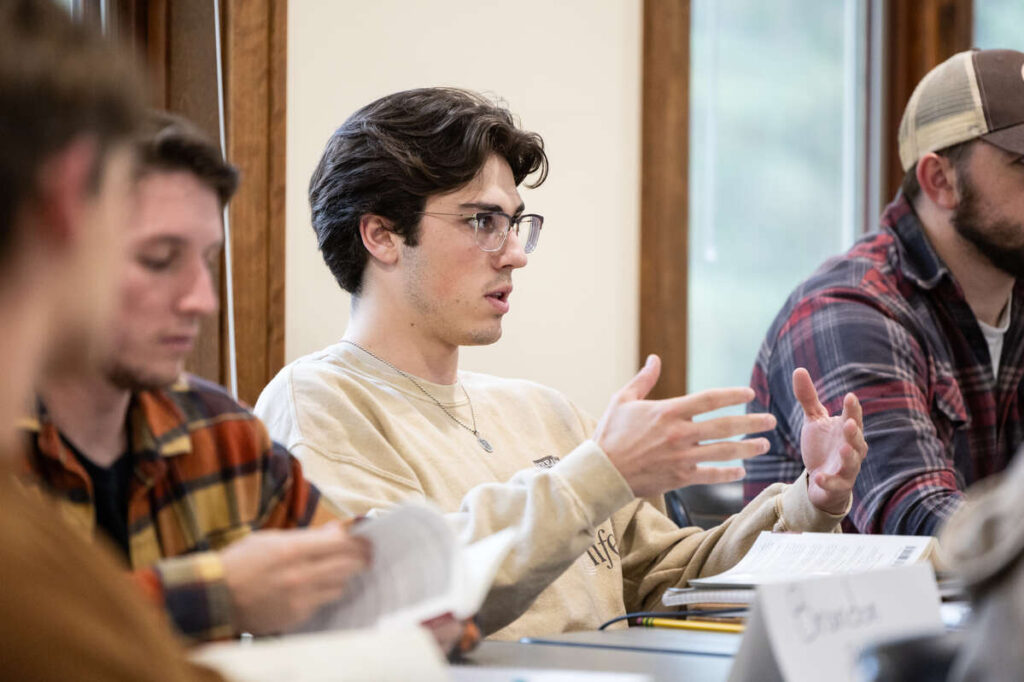
Weinkauf and Naughton expect the Mission of the Engineer course to constantly evolve to stay current. Take AI, for instance.
“AI has just come to life in our lives, and we examine how that’s going to impact work,” Weinkauf said. “If this course is about the work and the mission of an engineer, then if we don’t explore the impact of AI, we would be doing a disservice to our students. We talk about AI from a lot of different lenses – not only technologically, but also about the structure of organizations.”
Other topics in the course include how engineers and their companies address diversity, job design, the impact of products and service, and equity and wealth distribution.
“Work is not impermeable to societal beliefs and trends, so we build those topics into the course as well,” Weinkauf said.
Representing St. Thomas
Naughton and Weinkauf consider the Mission of the Engineer a signature course for St. Thomas.
“There’s something special about a course that’s attempting to foster this interdisciplinary dialogue that can get so easily lost in a highly specialized university,” Naughton said.
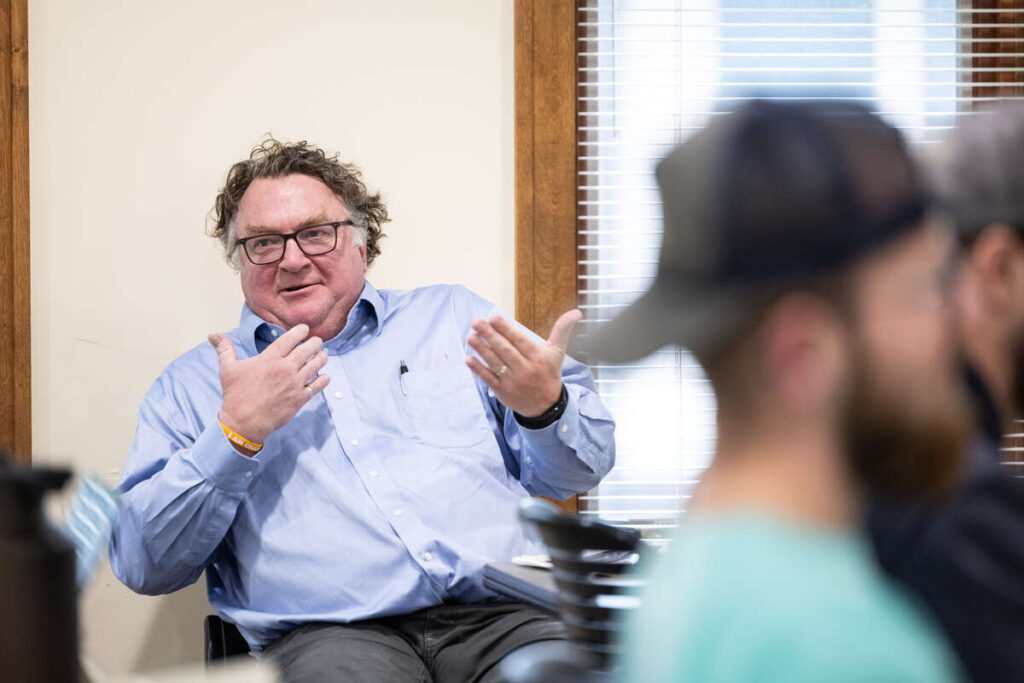
The duo’s experience in industry also influences how they teach the course. (Before entering academia, Weinkauf was a research engineer at Shell Oil Company; Naughton serves on the board of directors of Reell Precision Manufacturing.)
“The Mission of the Engineer course includes tools and experiences that, at most institutions, are denied in the experience,” Weinkauf said. “A course like this represents St. Thomas and our identity. These elements of our education are the yeast, not the frosting; they represent the integration of faith and reason, which is the essence of a St. Thomas education.”
Howell and Willard agreed that all students at St. Thomas should take the Mission of the Engineer course, even suggesting that it should be called the Mission of the Professional.
“My mind is like a bunch of tinder. This class is throwing the spark on that tinder, and it just keeps burning,” Howell said. “Each class session is just another log on the fire.”
